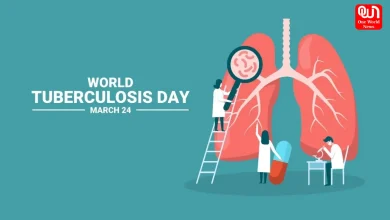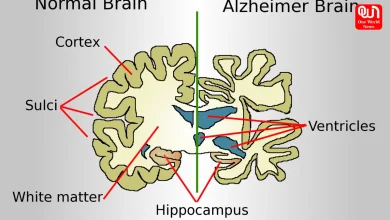What Is Hangxiety? What Are Its Treatment And Remedies?
Hangxiety, a blend of hangover and anxiety, refers to post-alcohol anxiety. Treatment involves hydration, self-care, and seeking professional help.
Understanding Hangxiety: Coping Strategies and Treatment Options
What is Hangxiety?
Hangxiety, a portmanteau of “hangover” and “anxiety,” refers to the experience of feeling anxious or stressed after consuming alcohol, typically the day after drinking. It’s a phenomenon many people encounter, where feelings of guilt, embarrassment, or worry surface as the effects of alcohol wear off. Hangxiety can vary in intensity from mild discomfort to severe anxiety and can significantly impact one’s well-being and daily functioning.

Read more: Can Poor Sleep Increase Your Risk Of Cancer? Common Questions Answered By Oncology Expert
Causes of Hangxiety
Several factors contribute to hangxiety, including:
Alcohol’s impact on neurotransmitters: Alcohol affects neurotransmitters such as serotonin and gamma-aminobutyric acid (GABA), which play a crucial role in mood regulation. The disruption in these neurotransmitter levels can lead to feelings of anxiety.
Dehydration: Alcohol is a diuretic, leading to dehydration, which can exacerbate feelings of anxiety.
Sleep disturbances: Alcohol can disrupt sleep patterns, leading to poor-quality sleep or insomnia, both of which can contribute to feelings of anxiety.
Social pressures: Social situations involving alcohol can sometimes trigger feelings of anxiety, especially for individuals prone to social anxiety or those who have experienced negative social interactions while drinking.

Symptoms of Hangxiety
Symptoms of hangxiety can vary from person to person but may include:
l Feelings of dread or apprehension
l Racing thoughts or inability to focus
l Increased heart rate or palpitations
l Sweating or trembling
l Upset stomach or nausea
l Headaches or muscle tension
l Difficulty sleeping
Read more: The Health Benefits of South Indian Breakfast and Its Role in Weight Loss
Treatment Options for Hangxiety
While there’s no specific medication designed to treat hangxiety, several strategies can help alleviate symptoms:
Over-the-counter pain relievers: Nonsteroidal anti-inflammatory drugs (NSAIDs) such as ibuprofen can help alleviate headache and muscle pain associated with hangxiety.
Hydration: Drinking plenty of water can help counteract the dehydration caused by alcohol consumption and may alleviate some symptoms of hangxiety.
Balanced nutrition: Eating a nutritious meal can help stabilize blood sugar levels and provide essential nutrients that support overall well-being.
Relaxation techniques: Practices such as deep breathing, meditation, or progressive muscle relaxation can help reduce feelings of anxiety and promote relaxation.
Avoiding alcohol: Limiting or abstaining from alcohol altogether can prevent hangxiety from occurring in the first place.
Coping Strategies and Remedies
In addition to treatment options, several coping strategies can help individuals manage hangxiety:
Mindfulness: Practicing mindfulness techniques can help individuals stay present and grounded, reducing the impact of anxious thoughts and feelings.
Engaging in enjoyable activities: Participating in activities that bring joy or relaxation, such as listening to music, spending time in nature, or engaging in hobbies, can help distract from feelings of anxiety.
Seeking support: Talking to friends, family members, or a therapist about feelings of anxiety can provide validation and support, reducing feelings of isolation.
Setting boundaries: Establishing boundaries around alcohol consumption and social interactions can help individuals avoid situations that trigger hangxiety.
Self-compassion: Practicing self-compassion involves treating oneself with kindness and understanding, even in the face of difficult emotions. This can help individuals navigate feelings of guilt or shame associated with hangxiety.
Seeking Professional Help
If hangxiety significantly impacts daily functioning or persists despite self-care efforts, it may be beneficial to seek professional help. A mental health professional, such as a therapist or psychiatrist, can provide personalized treatment options and support tailored to individual needs.
We’re now on WhatsApp. Click to join.
Lifestyle Changes for Managing Hangxiety
Making lifestyle changes can also help manage hangxiety in the long term:
Prioritizing sleep: Establishing a consistent sleep routine and prioritizing good sleep hygiene can improve overall well-being and reduce the risk of hangxiety.
Practicing moderation: Limiting alcohol consumption and avoiding binge drinking can reduce the likelihood of experiencing hangxiety.
Incorporating stress-reduction techniques: Regular exercise, mindfulness practices, and relaxation techniques can help manage stress levels and reduce the impact of hangxiety.
Conclusion
Hangxiety is a common experience for many individuals after consuming alcohol, characterized by feelings of anxiety or stress. While there’s no one-size-fits-all solution, various treatment options, coping strategies, and lifestyle changes can help alleviate symptoms and improve overall well-being. By prioritizing self-care, seeking support when needed, and making healthy choices, individuals can effectively manage hangxiety and enjoy a more balanced and fulfilling life.
Like this post?
Register at One World News to never miss out on videos, celeb interviews, and best reads.








